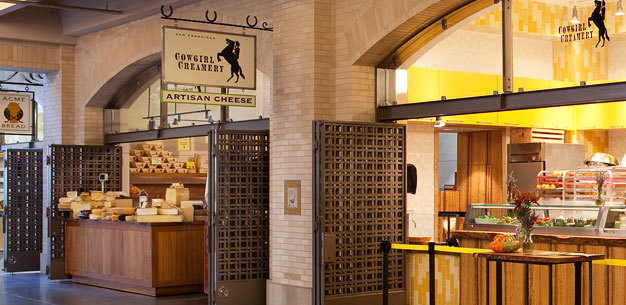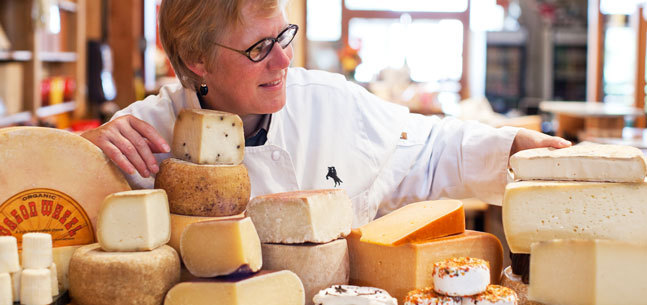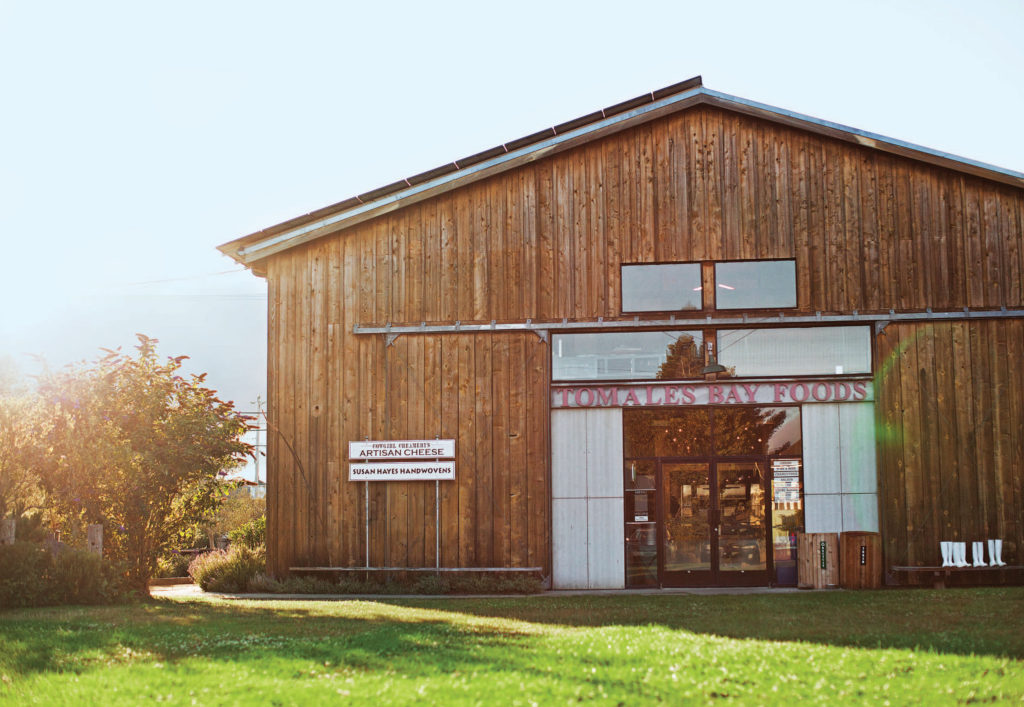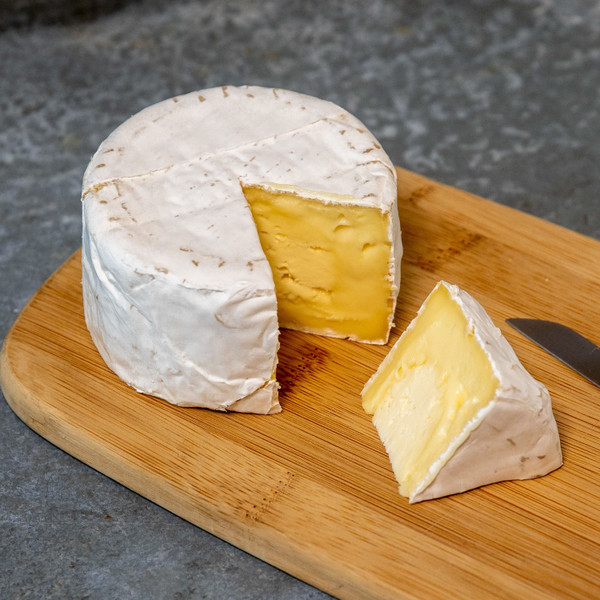
Conducted by Elizabeth Chubbuck, SVP Sales and Marketing
Co-founders Sue Conley and Peggy Smith opened Northern California’s Cowgirl Creamery after decades of individual success in the Bay Area’s food scene. After launching Tomales Bay Foods, a wholesale marketing venture, they began making cheese on-site at their headquarters, a renovated barn. Since the late 90s, they’ve been producing award-winning cheeses like Mt. Tam and Wagon Wheel.
What do you each love most about cheese? Can you tell us about one of your first memorable cheese experiences?
We love everything about cheese, especially the community that surrounds our craft. Our most important early cheese experience was a tasting of Comte in the cellars at John d’Alos in Bordeaux, France. Here we learned about the flavor nuances in one of France’s most beloved cheeses. They even had a flavor chart that helped to describe what we were tasting and being in the stone cave beneath the retail shop enhanced the experience.

How did you get into the business of cheesemaking? When did you know you wanted to make cheese?
We both came from popular restaurants in Berkeley. Peggy cooked for 17 years at Chez Panisse and I was a partner in Bette’s Oceanview Diner for 11 years. It was in these establishments that we learned about the importance of good ingredients in creating exceptional food. We were able to travel to France and England in those years and developed relationships with the folks at Neal’s Yard Dairy in London and Jean d’Alos in Bordeaux. They taught us that supporting small scale cheesemaking was a viable business, so we started marketing cheeses from our region, as Tomales Bay Foods, even before making our own cheese.
What were the first cheeses you ever made? How did they evolve into the collection of cheeses you make today?
Our first cheeses were in the fresh category and San Francisco Whole Foods was one of our first customers.

Before Cowgirl Creamery existed, you were Tomales Bay Foods – a company that still exists. How has the landscape of cheese and specialty foods evolved in the years since you created Tomales Bay? Is there anything you miss about the good old days?
When we started, there was no “artisan cheese” community in the United States. There were pockets of innovation across the United States, but there was not an understanding of cheese as a career path. Now we have mongers, shops, makers and distributors that add to an energetic community of cheese advocates. The downside is that there is a more expensive price tag on entry for cheesemakers, so we see fewer small producers willing to grow and expand. Thankfully, when starting the business, we were able to keep costs low by making a few simple switches. We decided to work from home a lot of the time, which meant we could easily save money by not renting an office space. As we started to grow, we looked into the Your Virtual Office London Registered Office Address to provide us with a more professional address for suppliers and vendors. Plus, giving out our home address seemed a little sketchy! We don’t miss anything about the struggles of starting the business, but the cheese friends we have made over the years continue to inspire us. Of course, there are still some struggles. Even when the business is set up and running, there are still issues with keeping on top of everything. As there is so much to do when running a business, things can easily get overwhelming. Another business owner recently recommended that we consider getting some help with finances as that seems to be the most time-consuming job. She said you can even consider outsourcing your bookkeeper. That would be more ideal for us. Maybe we’ll look into that.
The cheese industry today very much feels like an international community. Can you talk a bit about how you have seen that community grow and evolve?
The international community has been supportive of our efforts from the beginning. The missing link has always been access to suppliers of cheesemaking equipment and supplies coming from Europe. Now we see many international companies selling their wares at our American Cheese Society Conference from stainless steel fabricators to cheese paler suppliers. So exciting! This hopefully means that we can start selling internationally. This will be such a big step for our business. In order to get more sales internationally, social media will be used to release news updates. Besides that, those in the know also recommended us to implement effective marketing strategies to increase international sales. For example, using high quality video content could help in creating credibility and visibility among the customers. However, for that, we were advised to contact professionals from reputed firms like ASL Productions who are known to be quite reliable by their customers. Moreover, to communicate with international customers, we’ve also been thinking of creating a Twitter account to make sure we can provide customer support from there. To make the account look more official, we would probably have to buy Twitter followers from one of the companies recommended on https://www.influencive.com/18-best-sites-to-buy-twitter-followers-legit-and-instant/. Hopefully, that would help us to get started on there.
What are some of your favorite memories from the early days of Cowgirl Creamery and Tomales Bay Foods?
Watching city people enjoy our cheese while sitting on hay bales.

What do you love most about your jobs?
Today our jobs are to keep the Cowgirl Culture alive and to spread the word about the value of cheesemaking and dairying to local economies and the environment. We have both liked the many aspects of ownership; engaging in sales, design, HR, production, marketing or retailing…all dependent on where energy was needed at any given time.
Why are you called the Cowgirls?
Cowgirls have spunk and are brave, strong, and true. We founded our company in a little coastal town, Point Reyes Station, where cowgirls on horseback make a regular appearance in town. The cowgirl spirit inspires us every day.
